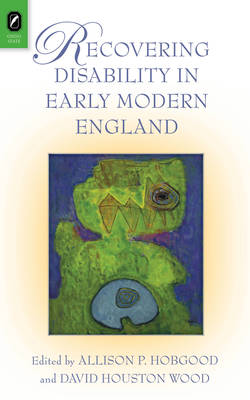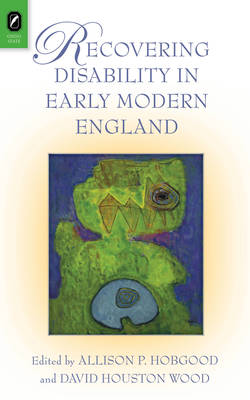
En raison d'une grêve chez bpost, votre commande pourrait être retardée. Vous avez besoin d’un livre rapidement ? Nos magasins vous accueillent à bras ouverts !
- Retrait gratuit dans votre magasin Club
- 7.000.000 titres dans notre catalogue
- Payer en toute sécurité
- Toujours un magasin près de chez vous
En raison de la grêve chez bpost, votre commande pourrait être retardée. Vous avez besoin d’un livre rapidement ? Nos magasins vous accueillent à bras ouverts !
- Retrait gratuit dans votre magasin Club
- 7.000.0000 titres dans notre catalogue
- Payer en toute sécurité
- Toujours un magasin près de chez vous
33,45 €
+ 66 points
Description
While early modern selfhood has been explored during the last two decades via a series of historical identity studies involving class, race and ethnicity, and gender and sexuality, until very recently there has been little engagement with disability and disabled selves in sixteenth- and seventeenth-century England. This omission is especially problematic insofar as representations of disabled bodies and minds serve as some of the signature features in English Renaissance texts. Recovering Disability in Early Modern England explores how recent conversations about difference in the period have either overlooked or misidentified disability representations. It also presents early modern disability studies as a new theoretical lens that can reanimate scholarly dialogue about human variation and early modern subjectivities even as it motivates more politically invested classroom pedagogies. The ten essays in this collection range across genre, scope, and time, including examinations of real-life court dwarfs and dwarf narrators in Edmund Spenser's poetry; disability in Aphra Behn's assessment of gender and femininity; disability humor, Renaissance jest books, and cultural ideas about difference; madness in revenge tragedies; Spenserian allegory and impairment; the materiality of literary blindness; feigned disability in Jonsonian drama; political appropriation of Richard III in the postcommunist Czech Republic; the Book of Common Prayeras textual accommodation for cognitive disability; and Thomas Hobbes's and John Locke's inherently ableist conceptions of freedom and political citizenship.
Spécifications
Parties prenantes
- Auteur(s) :
- Editeur:
Contenu
- Nombre de pages :
- 234
- Langue:
- Anglais
Caractéristiques
- EAN:
- 9780814256435
- Date de parution :
- 09-10-20
- Format:
- Livre broché
- Format numérique:
- Trade paperback (VS)
- Dimensions :
- 152 mm x 229 mm
- Poids :
- 349 g

Les avis
Nous publions uniquement les avis qui respectent les conditions requises. Consultez nos conditions pour les avis.






